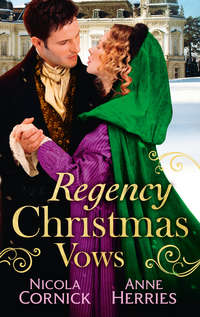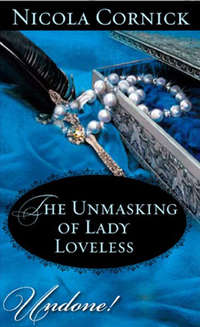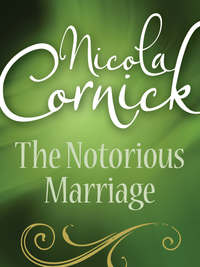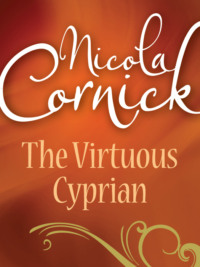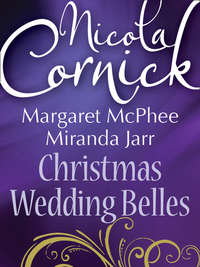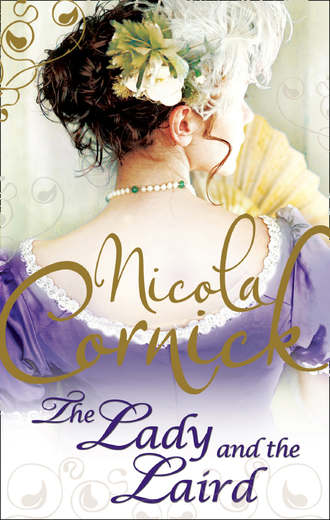
Полная версия
The Lady and the Laird
“And the MacMorlans,” Lucy said. “We talked about this eight years ago, you and I.”
A smile slid briefly into Robert Methven’s eyes like sunlight on water. “So we did,” he said softly.
Lucy suddenly felt very hot. She broke the contact between them looking down, smoothing her skirts.
“Cardross holds to the old enmities,” Robert Methven said. “He and I—” He shrugged. “Suffice it to say, he has been waiting for an opportunity to claim back the lands he believes to be his. When my grandfather died I was in Canada and so was slow to return and claim my inheritance. That gave him the chance he needed.”
“I don’t quite see how I am involved in this—” Lucy started to say, but Methven cut in, his incisive tone reminding her that his patience with her was wafer thin.
“You will,” he said. “Under the terms of the original treaty, the Methvens were given lands carved out from the earldom of Cardross. Those lands constitute half my estate.”
There was a hollow feeling in Lucy’s stomach now. “I can see why Wilfred might not like that,” she said.
Methven’s smile held no warmth. “Indeed. The agreement was originally reached because the Methven clan had bested Cardross men in battle. King James the Fourth imposed the ruling on both sides back in the fifteenth century, but it still stands today.”
The fire roared and cracked as a sudden gust of wind curled down the chimney.
“The only proviso,” Methven said softly, holding Lucy’s eyes, “was that if any future marquis took more than twelve months to claim his inheritance, he would have to fulfill certain criteria or forfeit his lands. I took thirteen months.”
“Why did it take you so long to return?” Lucy asked. “Why were you, the Methven heir, in Canada at all?”
She saw something flicker in his eyes, something of pain and dark, long-held secrets.
“That does not concern you,” he said, and the words were like a door slamming shut in her face. “I was late claiming my lands and title and so Cardross had his chance to invoke the old treaty. Under its terms I am required to wed within a year and produce an heir within two.” He paused for a heartbeat. “Now you will see what you have done in disposing of my bride.”
Lucy did. She had destroyed everything he had worked to safeguard. She had put the safety of his lands and his clan at risk. For a moment the disastrous consequences of her meddling made her feel quite faint.
“I did not know.... Surely you can find another bride...” she stammered, then fell silent beneath the searing contempt in his gaze.
“That is the delightful twist,” Methven said politely. “King James, in his desire to force sworn enemies to bed down together, made it a requirement that I wed a descendent of the earls of Cardross.”
“Oh.” Lucy frantically tried to remember Wilfred’s family tree. He had no sisters—and would no doubt have forbidden them to marry Robert Methven if he had. Dulcibella had been a distant cousin. So was she, of course, but on the female side. There was no one else she could recall. Wilfred was almost devoid of relatives. Which was bad news for Lord Methven.
“I am sorry,” she said. She knew the words were inadequate. She had felt guilty enough before, but now that the full extent of the damage was revealed she felt quite wretched.
“You may imagine,” Methven said cuttingly, “how your regret moves me.” He got up abruptly and placed his untouched glass of claret on the table.
“There is no need to be so sarcastic,” Lucy protested. She could feel the guilty color stinging her cheeks. “I truly am sorry. I did not know—”
“Ignorance is no excuse,” Methven said roughly. “It is not as though your letters on behalf of your brother are unprecedented.”
Apprehension breathed gooseflesh along Lucy’s skin. Wrapped up in the tale of the Methven inheritance, stifled by guilt, she had forgotten for a moment that Lord Prestonpans had dropped her well and truly in trouble with his ill-considered ramblings earlier.
“You do not deny it,” Methven said after a moment. “So it must be true. You wrote the erotic letters that scandalized society last year.”
He strode across to the fireplace and laid one arm along the mantel. Every action spoke of latent power and authority. Lucy felt completely intimidated and was equally determined not to show the fact. She stood up, because being seated when he was standing made her feel at an acute disadvantage.
Her palms were damp. She rubbed them on her skirts. “I did not realize how Lachlan’s friends would use those letters,” she said. “I had no notion.”
“Ignorance is an excuse you have already tried this evening,” Methven said pleasantly. “It wears thin. Your gullibility has been fairly extensive, hasn’t it, Lady Lucy? How did you expect people would use erotic letters?”
Lucy’s face was burning. “I agree that my naïveté has been extensive,” she said, between shut teeth.
Methven stepped away from the fireplace and came toward her. He took her gently by the upper arms, turning her so the candlelight fell on her face. He did not let her go; his hands were warm on her bare skin above the edge of her gloves, and his gaze on her face made her feel mercilessly exposed.
“Are you a virgin?” he asked.
“My lord!” Lucy was genuinely shocked. She could feel even hotter color stinging her cheeks now.
“It’s a fair question,” Methven said, “under the circumstances.” He looked unmoved by her outrage, amused even. “The erotic letters hint at an experience far greater than that of the average debutante. Not—” he appraised her thoughtfully “—that you are average, precisely. Far from it.”
“My experience or lack thereof is no business of yours, my lord,” Lucy said. “That is a scandalous question. No gentleman would ask it.”
Methven inclined his head ironically. “Then I am no gentleman. And I would still like to know the answer. Could one write like that without knowing what it truly felt like to make love? I think not.”
“There was no personal experience in my writing,” Lucy said. She was feeling strange; her head felt too heavy and too light at the same time, as though she had been drinking champagne. She was suddenly aware that Methven’s hands had slid down her arms to hold her lightly by the elbows. She wanted to tell him to let her go because it felt disturbing, far more so than a simple touch should. And then he stroked the tender skin in the hollow of one elbow with his thumb, such a sweet caress that it made her catch her breath and made the blood flow heavy like honey in her veins.
“You must have an extremely vivid imagination,” Methven said softly.
“I have no imagination at all,” Lucy said, trying to concentrate. “Writing is purely an academic exercise for me.”
She saw her words had surprised him. His hands stilled on her. There was curiosity and speculation in his eyes.
“Pure is not really the right word to describe your writing,” he said. His gaze narrowed on her face. “Are you telling the truth? Such provocative words did not affect you in any way?”
“I don’t know what you mean,” Lucy said impatiently. She gave a little dismissive shrug. “Lachlan wanted love letters, so I researched what a love letter should be and wrote some. I do understand that some people find them stimulating to the senses, but I—” She stopped. She was not going to tell him that she had locked any and all desires away long ago in order to spare herself pain.
“You?” Methven prompted.
“I don’t find them remotely arousing,” Lucy said truthfully.
Methven nodded slowly. She did not understand the expression in his eyes. “How interesting,” he said. “So the letters were not drawn from personal experience at all.”
“Certainly not,” Lucy said. “They were drawn from my grandfather’s library.”
That made him smile and in that moment she saw her chance. His attitude seemed to have softened toward her a little. She would have to take a risk.
“Are you going to give me away?” she asked. She thought it was better to be direct than to prevaricate. Or beg. Begging was out of the question. She was not that feeble even if she was desperate.
For once he did not answer her immediately. His face was pensive. After a moment he said, “Perhaps you should have considered the consequences of your actions, Lady Lucy.”
He was right, of course. She should have done so. She wondered now if rather than being naive she had been deliberately reckless. In her deepest heart she had known the trouble that would be caused if the truth about the letters came out, and yet she had written them. She had no explanation as to why she would do such a thing. Except that the letters had been a small rebellion, exciting, dangerous. She had challenged all the stifling rules that bound her, and it had been exhilarating.
Besides, she had thought herself safe. She had thought no one would ever unmask her.
“You are right,” she admitted grudgingly. “It was stupid of me.”
“It was foolhardy and dangerous.” He sounded unyielding and unsympathetic. “You have interfered in several people’s lives and done a great deal of damage.”
Lucy felt like a chastened schoolgirl. “I realize that it was wrong,” she offered. She tried her special smile again, the one without guile, the one that generally made men melt like butter. “I have apologized.”
It did not work. Methven smiled too. Grimly. “You are trying to manipulate me,” he said. “I am not so susceptible, Lady Lucy, I assure you. I think...” He paused. “I think the people you deceived should be told.”
“No!” The stark, black panic was on Lucy now, threatening to swallow her whole. Perhaps begging was not out of the question after all. She struggled to stay calm.
“You could not prove I wrote them,” she said defiantly.
His smile deepened. “I could have a damned good go at trying, and it would please me to do so.”
Just the hint of impropriety would be sufficient. Lucy knew that.
“Please—” She heard the entreaty in her own voice, and this time there was no guile at all. “I know I deserve—”
“To be punished?”
His words, hot and dark, tugged something deep inside her. It was a sensation Lucy had never felt before and it was so swift and so fierce that she gasped. A shocking bloom of warmth and pleasure spread low through her body. Her eyes jerked up to his face, to meet the turbulent heat in his eyes. He gave a low exclamation and the next moment she was in his arms and he was kissing her.
Lucy had not been kissed since that night at Forres Castle. It was not the sort of thing that she invited gentlemen to do. She had never even thought about what it might feel like to kiss someone again, not even out of intellectual curiosity.
This kiss was not like the one she had shared with Robert Methven years before. It felt fierce, heated and complicated, with no concessions to her inexperience. She felt his tongue tease her lips apart and she opened to him and he took her mouth completely. His tongue swept across hers, tasting her as though she were honey, and a powerful heat washed through her, scalding her, shocking her. Immediately she was lost and out of her depth. There was too much here, too much of dark pleasure, too much carnal promise, overwhelming, impossible to understand. It had happened far too fast and now the shock and the fear caught her equally quickly. She was shocked that after what had happened to Alice she could even feel like this, feel such passion, such desire. Then, a heartbeat later, guilt caught her too, and the familiar terror, and she froze in his arms.
He felt it and drew back from her. She heard him mutter a curse. She wanted to run away, frightened at emotions she could not begin to comprehend, but he held her close, her cheek against his shoulder, his lips on her hair, and gradually the fear faded. Within the circle of his arms she felt safe and protected; she felt sixteen again holding his promise against her heart. It was so unexpected a sensation that she relaxed, her breath leaving her in a sigh and her body softening. Only then did he speak.
“I’m sorry,” he said. His tone was rougher than she had heard from him before, but it did not frighten her. She knew his anger was not for her. He released her. She could not look at him, gripped as she was by a sudden shyness that paralyzed her. So he put his hand under her chin and made her meet his eyes.
“I’m sorry,” he said again. “I went too far, too fast.” There was regret and gentleness in his eyes and Lucy felt the floor shift beneath her feet and felt her stomach slide.
He released her. Confusion swept through Lucy then because she was remembering that no matter how she had felt before, this was now, and she had betrayed him and he did not like her for it. Yet despite that, something had happened between them, something dangerous, something she did not understand.
“I think,” she said—and her voice was a thread of sound—“that you should go.”
He looked at her for a long, long moment and his eyes were dark, his expression opaque, and she had no idea what he was thinking. Then he nodded abruptly.
He bowed and went out. Lucy heard the library door close.
She sank down onto one of the spindly cherrywood chairs, then got up again straightaway and went over to the sideboard, where she poured herself another glass of Lord Brodrie’s best claret. She needed a drink. The burn of the liquid against her throat steadied her. She drained the glass and filled it again.
The fire felt too hot. She moved away to a window seat, pressing her fingers against the cold diamond panes. It was as though her body was too heated, sensitive and on edge, wanting something.
“Lucy?”
She had not heard the library door open, but she saw that Mairi was standing on the edge of the Turkish rug, watching her. The candlelight glittered on the silver thread in her gown. Mairi’s gaze went to the glass in Lucy’s hand. Her eyebrows shot up.
“I saw Lord Methven leaving,” she said.
“We were discussing literature,” Lucy said. She drank some more claret and felt it slip through her veins, soothing her.
“Of course you were, Lucy,” Mairi said dryly. “I always find literary discussions so exciting they leave me looking as dazed as you do now.”
“It’s the drink,” Lucy said.
“And the kissing,” Mairi said. “You should see yourself.”
Lucy looked up at her reflection in the big mirror that hung above the fireplace. Her eyes looked a hazy dark blue. Her lips were stung red and slightly swollen. She pressed her fingers to them and felt an echo of sensation through her body. Her hair had come undone from its remaining pins. She had no notion how that had happened. She had no notion how any of it had happened. She was not sure what disturbed her more: the kiss or those sweet moments after in Methven’s arms when she had felt protected and safe.
Now you know how Alice felt.
Immediately Lucy felt the cold fear take her. It was impossible. She had never felt physical desire, not when she had read the erotic tales, not even when she had written her own sensual poetry. Yet one minute in Lord Methven’s arms had awakened emotions in her that she had never known, feelings that terrified her because she knew where they could lead.
She did not want to feel any of them.
Lucy shrank in on herself, the cold lapping around her again. Alice had given herself up to love and passion, given her heart, given her whole self, body and soul. It had ended in shame and misery and pain, and Lucy would never, ever make the same mistake as her twin had done.
“It mustn’t happen again,” she said aloud.
There was a mixture of amusement and cynicism in Mairi’s eyes.
“How naive you are,” she said gently, taking Lucy’s arm and steering her toward the door. “Once it has happened once, of course it will happen again. The only real question is when.”
CHAPTER FIVE
“ROBERT NEEDS TO find another bride now that his first choice has fled.” The Dowager Marchioness of Methven, radiating energy and disapproval, seated herself with orderly care on the upright chair Robert held for her. She had a habit of speaking about people as though they were not present. Certainly it felt to Robert as though his input into the conversation was not required.
It was a week after the wedding and they were in the library at Methven Castle. Mr. Kirkward, the family lawyer, had traveled up from Edinburgh to advise them. He was sitting on a lumpy gilt-and-cream sofa and looking most uncomfortable. Lady Methven was seated opposite and Jack drew up a chair to one side. Robert preferred to stand. He crossed to the window and looked out; a soaking gray haze hung over the far mountains, damping the day down and casting dark shadows across the glen.
This was how he remembered his grandfather’s castle, as a dripping, mournful edifice that had been barren of pleasure. In those days it had been his older brother, Gregor, who had brought light and laughter to the old place, but now Gregor was gone. As always, Robert felt the profound ache in his chest that memories of Gregor brought with them. Gregor’s death had changed his life and his future. He had been the second son, the spare. Methven should never have been his. His grandfather had told him so, that fierce old man who had made no secret of the fact that Robert was a poor substitute for his brother.
“It is indeed most unfortunate that Miss Brodrie eloped,” Mr. Kirkward agreed, his dry, precise tones recalling Robert to the room with its sterile shelves of uncut books and its uncomfortable furniture. “Such volatility in a bride quite ruins one’s plans.”
“Better before the wedding than afterward,” Robert said laconically.
He saw Kirkward’s pale gray eyes blink rapidly behind his bottle bottom spectacles. Like Lord Brodrie and the minister before him, the lawyer was evidently thinking him a cold fish.
“Quite so.” Mr. Kirkward shuffled the papers he had taken from his document case. Robert noted his discomfort. He had seen it in other men who had been uncertain how to deal with him. His brusque manner, his lack of warmth, intimidated many people. He knew that. It could be useful; he had never seen the need to change. Charm was a concept that was alien to him.
“Any preferences for your next choice, Rob?” Jack asked. He threw Robert a glance laced with malicious amusement. Jack was one man who was most certainly not intimidated by him. But his cousin knew him better than most men.
“I don’t have the luxury of choice,” Robert said tersely. “As I understand it, there is no one suitable. I have to wed a descendant of the first Earl of Cardross, and sadly his line was not very fecund. Only Miss Brodrie and one other cousin are eligible.”
“That would be Lady Annabel Channing,” Lady Methven said, nodding. “Pretty girl, but a complete lightskirt. You would never know if your heir was yours or someone else’s.”
Mr. Kirkward made a choking noise. He took off his glasses and polished them feverishly on a white handkerchief.
Jack laughed. “I wouldn’t mind a brazen bride,” he said. “That might have its benefits.”
Robert did mind, but there was little he could do about it. “My attempts to find a suitable wife have foundered,” he said. “I might as well choose an unsuitable one since she is the only eligible woman left.”
If only he had not kissed Lucy MacMorlan. One kiss had made him ache to take Lady Lucy to his bed when what he was obliged to do was take another woman as his bride. He did not like Lucy very much. Her meddling had cost him dearly. He certainly did not trust her. But liking had little to do with wanting, and he wanted her badly.
“You will do nothing so unbecoming to the name of Methven as marry a lightskirt, Robert,” his grandmother corrected him.
“I’ll do what I have to do,” Robert said bleakly. “Grandmama, there is no alternative.” He would marry an entire brothel of lightskirts if that were the price he had to pay to keep his lands.
“I regret to inform you that Lady Annabel wed last month in London,” Mr. Kirkward said primly.
“Then we are in some difficulty,” Robert said. He felt a violent fury to be so hamstrung by fate. All his life he had taken control, wrested it to him when he had none, fought for it. To be outmaneuvered by a royal decree three centuries old, to be able to do nothing to secure his estates and the future of his clan was intolerable.
“We simply cannot allow ghastly Wilfred Cardross to take Methven land,” Lady Methven said. There was a plaintive note in her voice, as though she suspected Robert of backing off from the fight. “He is a horrible man and he will clear the people from the estate and destroy their communities and sell off everything that he can and squander it all on the cards.”
“I have no intention of allowing Cardross to take the Methven estates,” Robert said. The earl was a hard landlord who Robert knew would force the crofters from their traditional homes and livelihoods. Many of the families of men who had fought for the Methven clan for generations would be turned off, abandoned into poverty, families divided and their strong community spirit extinguished. Those on the far-flung northern islands that were part of his patrimony would simply starve in these hard economic times.
He could never allow it. It was his duty as laird to protect the welfare of his people, and he was not going to fall at this, the very first hurdle. It was his fault that they were in this position in the first place. If he had not turned his back on Methven and on his duty as heir all those years ago, he would not have been in Canada when his grandfather had died and would not have taken so long to claim his inheritance. He realized that his fists were clenched tightly. Tension seeped through every muscle in his body. It was impossible to allow Wilfred Cardross to triumph. Yet how to prevent it...
Mr. Kirkward cleared his throat. “My lord, if I might mention...” He sounded timid. Robert wondered if the lawyer genuinely was afraid of him. Surely his reputation was not that bad.
“Of course, Mr. Kirkward,” he said.
“There is one other family line we have not previously explored,” Kirkward said. He searched through the sheaf of papers in his case with agitated fingers, and Robert saw he was holding a family tree. “We discovered it a number of weeks ago, but as you were already betrothed to Miss Brodrie it seemed irrelevant....” He placed the parchment on the table and smoothed it with his hand. “There is a slight problem, my lord, but perhaps, as you are—forgive me—desperate...”
Robert felt a prickle of irritation. He preferred directness to all this circumlocution.
“Spit it out, Kirkward,” he advised.
“You would be obliged to be brother-in-law to the man who stole your bride,” Kirkward murmured. “A sacrifice, but a small one perhaps, given that half of the Methven estates is at stake—”
Robert cut him off with a chopping motion. “Kirkward,” he said, “I have no idea what you are talking about.”
Mr. Kirkward flapped the genealogical list in his hand. “We had been interpreting the terms of the royal decree very strictly by looking for direct descendants of the Cardross earldom in the male line,” he said. “However, when we looked in the female line we found another line of descent.”
Robert thrust the hair back from his forehead in a quick, impatient gesture. “Would that meet the terms of the original treaty?” he asked swiftly.
Mr. Kirkward sighed with the air of a man at the end of his tether. “All the legal advice I have taken suggests it would meet the terms, my lord.”
Robert felt a flash of hope. Then he remembered the lawyer’s previous words. “When you said I would be obliged to be brother-in-law to the man who stole my bride...”
“Mr. Kirkward is referring to Lachlan MacMorlan,” Lady Methven said. She was squinting upside down at the family tree, head on one side. “The Duke of Forres’s daughters are kin to Cardross.”
Robert looked up sharply. “I know the Forres are kinsmen,” he said, “but I thought it was too distant a connection.”


